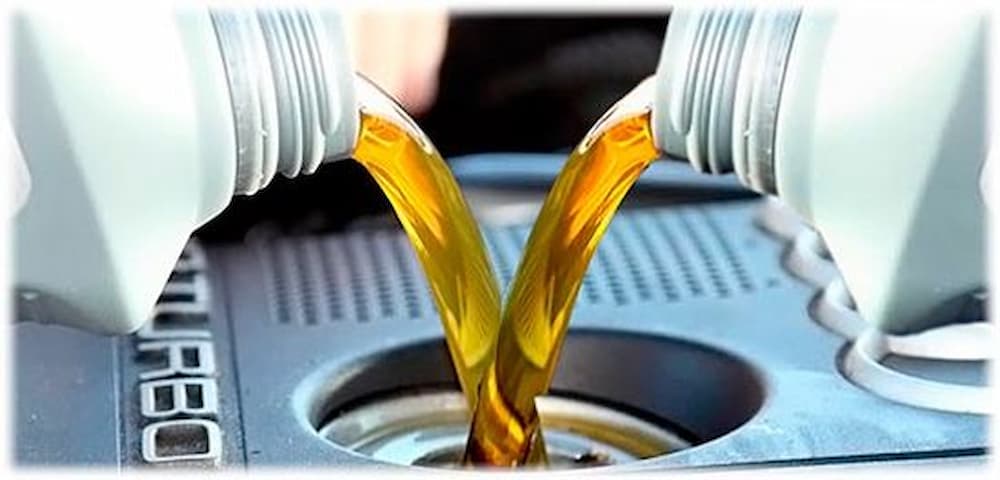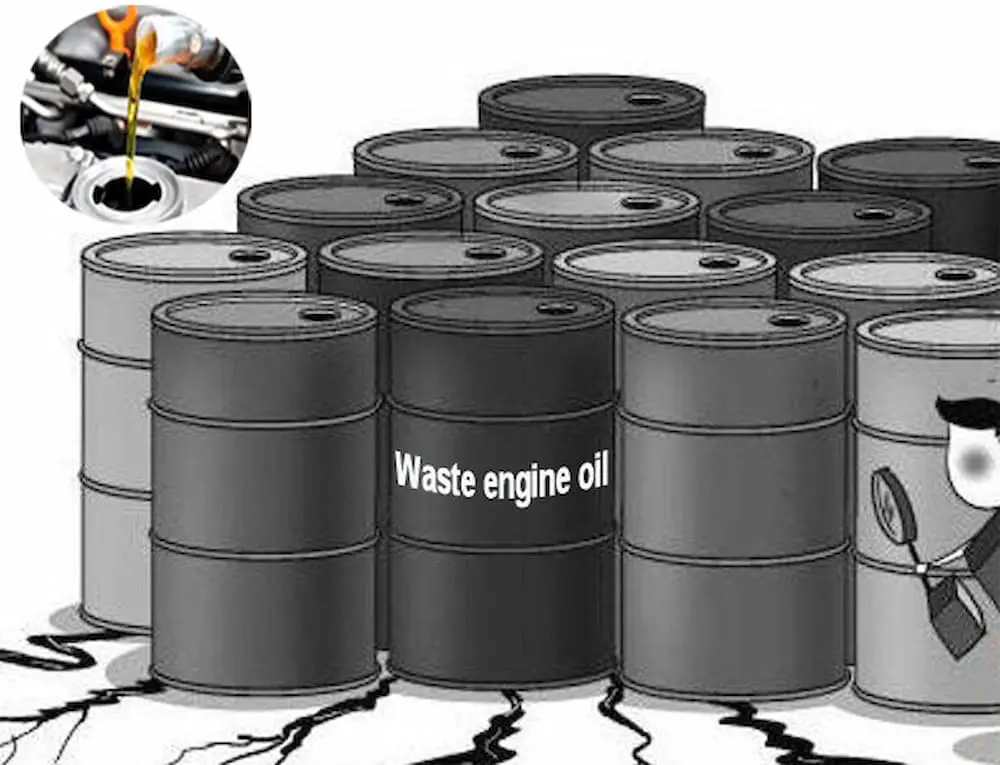Engine oil is non-renewable, so you need to care how you use it. Besides, every time you change engine oil, you have to pay in cash. That means spending several bucks every few months.
You can save some money by recycling the engine oil and reusing it. Interesting, right?
Read on to learn more:
Recycling vs. Re-refining

Before we go into the specifics, let’s discuss recycling vs. re-refining as these two terms often get confused to be the same. Hint: they aren’t.
Recycling
Regarding engine oil, recycling refers to using the used engine oil for a different purpose. In most cases, you’ll take your used oil to a recycling plant. The engine oil is then processed and filtered so that it can be used as lubricating oil, marine fuel, diesel oil, or heating fuel.
This process helps save the energy required for procuring crude oil. It is also an environment-friendly process that helps save fuel.
Re-refining
Re-refining refers to the process of returning oil to its original composition. It involves filtration, distillation, and dehydration, which is quite similar to the processing of crude oil. Re-refining requires more extensive purification as compared to recycling.
These processes are done so that the oil can gain a state similar to virgin oil — unused engine oil. However, re-refined oil is more environmentally friendly as it cuts out the drilling process required for extracting virgin oil.
Process of Recycling Engine Oil
You can add multiple different fluids to engine oil to recycle it. Here we’ll discuss three of these fluids and how they can be used for recycling engine oil.

Transmission Oil
One of the fluids you can add to engine oil to recycle is transmission oil. Transmission oil lubricates bearings and other metal parts within the vehicle’s gearbox.
For recycling engine oil, mix the used engine oil with the transmission oil, and the engine oil is ready for use as fuel.
When you do this, the engine oil will lose its effectiveness as a lubricating fluid.
You can not use it for its original function now. However, this mixture will work as fuel for heating purposes. This will help you recycle both fluids, efficiently use them, and save fuel and energy.
Synthetic Oil
You can also add synthetic oil to engine oil for recycling. The quality of synthetic oil is higher than engine oil, so mixing the two will lower the quality of the resulting oil. But you can still use it as lubrication for your engine.
This oil will be of inferior quality, so it may not last for that long. You’ll need to replace this mixture before reaching the 2,000 miles mark.
Maybe you can even go for more miles. But it depends on how you mix the used engine oil and the synthetic oil.
Hydraulic Oil
You can also mix hydraulic oil with engine oil to reuse it. Hydraulic oil is just light oil, so it will not affect the consistency of the used engine oil. You can use this oil for lubrication or use it as fuel on bonfires.
Disposing Engine Oil

Precautions
- Do not dispose of engine oil in the garbage, storm sewer, lake or river, creek, ditch, or the ground.
- Do not mix it with other solvents such as pesticides, antifreeze, and gasoline.
Procedure
- Put down an absorbent paper layer or tarp when draining used oil to capture any spilled oil.
- Do not contaminate the oil with any other substances or liquids.
- Drain excess oil from the oil filter by puncturing its dome.
- Seal the engine oil filter in a clean plastic bag as it still contains some engine oil.
- Store the engine oil in a clean sealed container.
- Transport the oil filter and used engine oil to a recycling facility.
Advantages of Reusing Engine Oil
Here are the benefits of reusing engine oil:
- Prevents pollution of soil and water
- Saves up on a valuable non-renewable resource
- Use less energy as compared to extraction of new oil
Final Thoughts: Mixing Fluids to Recycle Engine Oil
Bookmark this post for the next time you feel your car is ready for an oil change. Maybe you can find ways to recycle your engine oil and go Green!
For more engine-oil-related tips, explore our blog today.




I had no idea that engine oil could be recycled. It is typically sent to a recycling facility, as you mentioned. In order to be utilized as lubricating oil, marine fuel, diesel oil, or heating fuel, the engine oil is next treated and filtered. I think it would be fantastic to try this out because it might be a fuel-saving, environmentally beneficial method. I’ll be sure to let my family and friends know about this and look into waste oil collecting services that can assist us in the future.